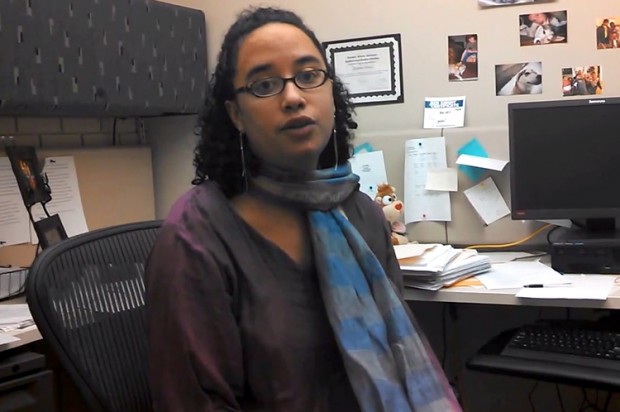The greatest sin a sociologist could commit is being boring… okay okay, abusing human subjects is the greatest sin, but being boring isn’t far behind. Sociology is, for a lack of a better word, sexy. No one storms out of actuary sciences class in a huff, but our students find our classes so emotional, so compelling, so challenging that they literally can not stand it and they run away.
On the four year anniversary of SociologySource.org I want to tell you what I’ve learned about making sociology accessible to the masses. Throughout all of my teaching, all of my work on SociologyInFocus.com, and the one-off projects I’ve done like the “Doing Nothing” video, I’ve been thinking really hard about and trying to develop my skills at communicating highly complex ideas with language that anyone could understand.
The Academic’s Guide to Writing Online
This is a guide for how to write so that your scholarly work finds an audience. This isn’t advice for how to write to get published in a top journal, in fact this might be the exact opposite of that advice. Ultimately, writing for social media is writing for a public audience. Therefore, it’s an act of public scholarship.
Talk to Me! – Acknowledge the Reader.
EXAMPLE: Many scholars today argue that when sharing your ideas with your audience the use of the third grammatical person places distance between the two parties whereas employing the first and second person delivers a reading experience that is superior in it’s intimacy with the reader
- Talk to your reader. Write as if your reader is in the room with you.
- Alternate your writing between the first person, “my research finds…” and the second, “your students will love…”
- Ditch the authoritative third person voice as it is often the coward’s crutch. It’s the bravado we use when we fear that what we say won’t be taken seriously.[1]
- Show don’t tell. Don’t be afraid to slip into a narrative to allow your reader to experience the event first hand. “Telling” stories second hand is like serving a dinner guest pre-chewed food.
Just Say It! – Never lead with a disclaimer or qualifier.
EXAMPLE: I don’t want you to read this and think I am trying to be mean. I’m also not trying to say that this applies to all forms of writing. As I said above, these are just my opinions.
- SHOOT ME IN THE FACE! Did you have something to say underneath all those disclaimers and qualifying statements?
- Never lead with disclaimers or qualifying statements. Say what you want to say immediately and then, if you really must, give them your disclaimers/qualifiers.
- Your first sentence exists to entice the reader to read the second sentence. Your first paragraph’s job is to intrigue your reader so they are compelled to read the second. And so on and so on.
K.I.S.S. – Keep it Simple Scholar!
EXAMPLE: Academic writers who use jargon and esoteric language are often preoccupied with communicating their cultural capital to their peers and because of this they sacrifice what could be a learning opportunity for a lay audience.
- Mercilessly destroy jargon. If you absolutely have to use a piece of jargon, don’t just define the term. Introduce the term to your reader using an anecdote or other illustrative tool.
- Nix the esoteric language. If a ten cent word can communicate an idea, don’t use a ten dollar word instead. You went to grad school; we get it.
- The greater the pre-requisite amount of education a reader must have to understand your reading, the smaller your audience will be and the smaller your impact will be.
- Jargon and esoteric language are the sacrificial offerings we place at the alter of public sociology.
Get in & Get Out.
- Keep it succinct. If possible, keep any blog post to less than 500 words.[2]
No! It’s Not All Important
- Only present the reader with information that is essential for them to understand your larger points.
- You have an expert’s mind, so to you it’s all essential. Try to remember back to when you were a novice to your subject. Try to remember how a “beginner’s mind” saw your subject and then write to answer the questions of the reader with a beginners mind.
- “Kill your darlings” as the saying goes. Delete non-essential information.
If You Have Something to Say, Say It
- Say something compelling, intriguing, challenging, inspiring, evocative, poignant, or otherwise interesting.
- If what you write feels risky you’re on the right path. If it’s something that you sincerely believe or something that empirical research can back up, then take the risk and hit publish.
- “The web has made kicking ass easier to achieve, and mediocrity harder to sustain. Mediocrity now howls in protest.” – Hugh Macleod
Don’t Let Perfection Be The Enemy of The Good
- Don’t worry if your grammar isn’t perfect. I’m not a grammarian. I have no doubt that those of you who are could rip apart what I’ve written.
- Focus on clearly communicating your ideas. It’s more important that you share your ideas with the world than it is to make sure your writing is 100% error free. Get in the arena and mix it up with people.
- Your writing isn’t etched in stone. Remember that unlike print, you can immediately change errors as your readers point them out to you.
A Final Note
Not every scholarly publication needs to be written so that a the general public can read it. There is nothing wrong with scholars using academic journals to share highly technical and complex research with other trained social scientists. However, as a discipline we need to have a bias toward accessibility and cultivate a community of sociologists highly skilled in communicating esoteric research into human readable texts. And this community of explainers, communicators, and ambassadors to our discipline need to be seen as providing an invaluable service to us all.
-
Not all authors are treated equally. Non-dominant voices are often presumed incompetent and using an authoritative voice can be an effective counter-measure to this type of discrimination. This is not cowardice. However, as a whole academics over rely on the authoritative voice to deal with their fear that others will unmask them as a fraud or take their openness as a sign of weakness. ↩
-
Oh the hypocrisy! This blog post is 1,060 words long! ↩



